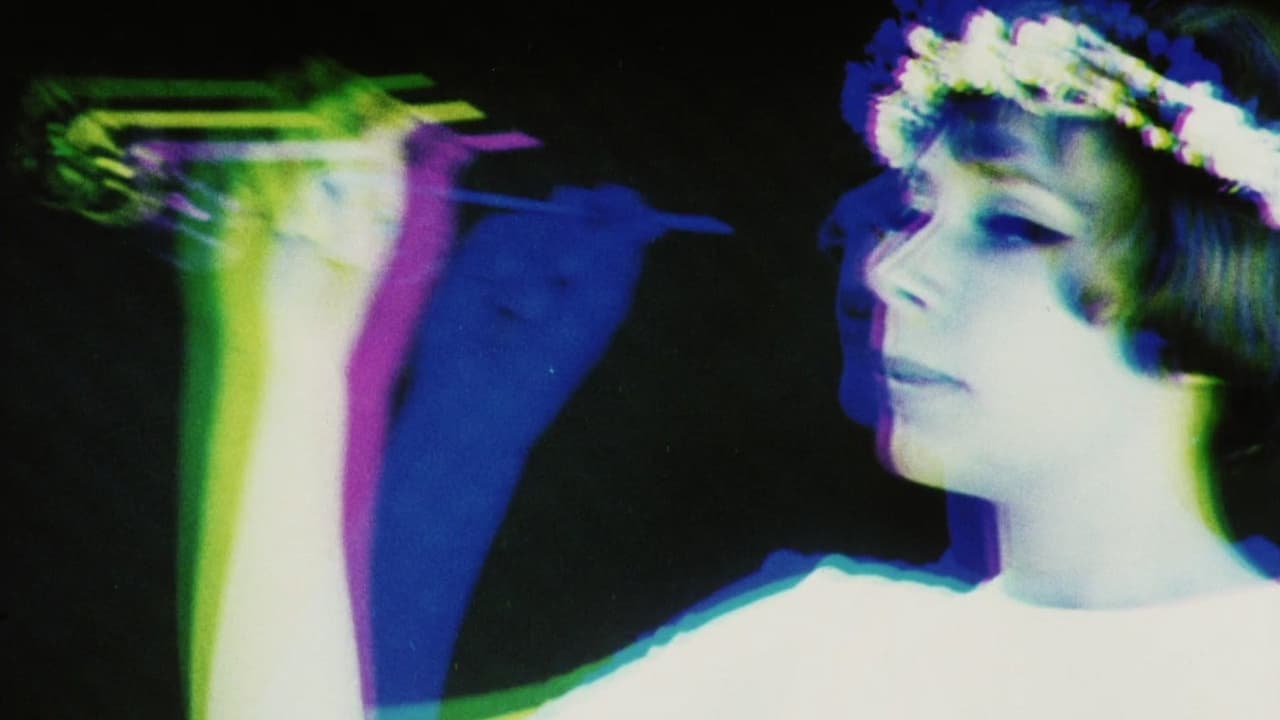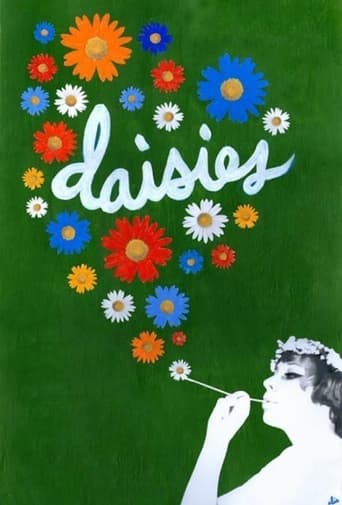StunnaKrypto
Self-important, over-dramatic, uninspired.
SunnyHello
Nice effects though.
Contentar
Best movie of this year hands down!
Anoushka Slater
While it doesn't offer any answers, it both thrills and makes you think.
kevinthomasw
Being interested in surreal films generally and Czech films particularly (I'm a big Svankmajer fan), I thought I'd give this one a go. Well, this is the first time I've ever agreed with communist censors. 'Depicting the wanton' is right. It is simultaneously the most pretentious and the most banal product of Czech New Wave cinema.Chytilova's mercifully brief film follows two spoiled brats as they gorge and entertain themselves at the expense of others; seriously, about half of this film involves eating. They are taken on dates with dull-looking gentlemen whom they manipulate, ditching them at the train station after their meal has been paid for. Other men they simply ignore, such as one butterfly-obsessed suitor who calls to plead forgiveness and profess his love, as the girls gleefully scissor bananas, pickles and sausages in what may be the most on-the-nose example of feminist symbolism ever expressed in film. It's fortunate that the girls are attractive, because they are otherwise intolerably obnoxious, acting like 12-year-olds at a slumber party -- jumping around, cooing to each other, and laughing in chipmunk-like squeals. At one point there is the following exchange, which sums them up nicely: "Your legs are crooked." "Don't you know that's just what I based my personality on?" That is, beyond their pointless antics, they have no personalities. I'm sure there are those who think this kind of thing is a 'daring' display of grrl power, but in reality it could not make women look worse. "We're supposed to be spoiled, aren't we?" -- lines like this make me wonder whether the characters were ever intended to be sympathetic. (If they are intended as a self-critique, they are a critique of the hedonism brought on by liberalization of Czech society, certainly something Chytilova does not intend.) At least the conclusion was satisfying, involving a deserved death by chandelier. Chytilova's idea of surrealism is color filters and hyperactive whimsy. A few scenes capture interest, but in general little thought is given to composition. At certain points, especially near the end, the film approaches Godard-esque pretension, which only added to my frustration. It's not just farce, it's politically relevant farce! Well, I'm not fooled. During the film's last moments, a typewriter scrolls the words 'This film is dedicated to those who get upset only over a stomped-upon bed of lettuce', as explosions detonate in the background. The implication is that you, the viewer, should go screw yourself if you think you have any right to criticize narcissistic wastefulness, especially when there are wars going on. It's a perfect encapsulation of liberalism: only things which directly harm other people are worth worrying about. It's hard to imagine a more trivial moral standard, but there it is, dressed up as radical chic. In the end, there are only two types of people who enjoy this movie: quirk-addicts who want a film to giggle over, and leftist pseudo-intellectuals, for whom nothing is too banal to justify in the name of rebellion. I'm neither, so I thought the film was garbage.
Jackson Booth-Millard
This Czechoslovakian film featured in the book 1001 Movies You Must See Before You Die was one I certainly did not know anything about regarding the plot or storyline, but when I read a little about it had some good feedback from the critics and it was one I looked forward to trying out. Basically the story revolves around two teenage girls both with the same name, Marie I (Jitka Cerhová) and Marie II (Ivana Karbanová) both have seemingly robotic personalities, but when it comes to their attitude towards life it is very immature. Almost the entire length of the film sees the two Maries cause all kinds of havoc for their own amusement and to the irritation and embarrassment of others, but they also find themselves on occasion in the arms of vulnerable men who want more serious relationships with them. Marie I and Marie II eat from a supposedly forbidden fruit tree (like the Tree of Knowledge of Good and Evil), they eat vigorously with no real manners including many odd looking foods, they outperform some professional dancers trying to entertain, they behave like pests with some restaurant waiters, they mess up and destroy a few rooms ready for guests, and they play tricks on a man about town (Julius Albert) (and some others) that they pretend to want relationships with but really they just use. In the end, after so much trouble making and pranks the two girls really learn a nasty lesson when they are killed by a large chandelier falling on and crushing them, but they were planning to put things wrong that they did wrong, this obviously came too late. As the two young childish and very naughty teenagers Cerhová and Karbanová give very believable performances, the film does most of the time feel rather weird and because of its destructive and anarchic material it was at the time banned by the Czech authorities, but now it is seen as an interesting alternative and surreal comedy film. Very good!
Andres Salama
Director Vera Chytilova's anarchic feminist film from the mid 1960s (right before the Czech new wave movement was broken by the Soviet Invasion that ended the Prague Spring) is hard to describe in terms of plot. Basically, it's about the various antics and gags of two young women. The victims of their practical jokes tend to be established society in general (which exists even in a socialist system as was Czechoslovakia at the time), and older men in particular. Aggressively experimental, the movie uses several types of film stocks, even in a single scene, as well as in your face editing cuts. There are several anti-phallic gags (with the girls cutting while giggling sausages, bananas, etc.) as well as an apocalyptic food fight (the girls seem to have a particular obsession with food). It's fun, imaginative, subversive, but even at a running time of less than half an hour, tiresome at times.
shafttt
'Daises' is the most ingenious women movie ever made. The key for watching the movie is to immediately accept the two women as real. Every second in this movie is a statement, so it overwhelms the spectator whether he/she likes it or not. Keep up with Vera C. (the director) because willingly or not she discloses the most precious secret of women's mind. The only condition is that you must like and enjoy her two women (girls). It is a privilege to watch this forty year old movie. The movie was done long before any consensus was reached about the social status of women. The seemingly chaotic world brings out the most essential needs. Vera C. brings us the best out of the'theater of absurd' stream. I think Samuel Beckett would have been impressed with this Experiment.

